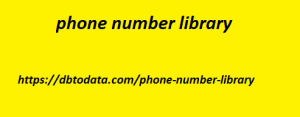- Every comment you make can have far-reaching effects, even if you don’t immediately see them. Words can inspire, comfort, or provoke, and they can impact others in ways you may not fully understand. When engaging in a disagreement, take a moment to reflect on how your words might affect the other person or the wider conversation. Ask yourself: How might my tone or phrasing be perceive? Could this be misunderstood or cause harm? By acknowledging the potential ripple effect of your actions, you take responsibility for their full impact.
-
Recognize Unintende Consequences
- Sometimes, even well-meaning statements can unintentionally escalate a conflict or hurt someone. When this philippines phone number library happens, it’s important to pause and assess the outcomes of your words. If you inadvertently create discomfort, confusion, or hurt, own that outcome, even if it wasn’t your intention. Acknowledging unintende consequences shows maturity and empathy and helps to repair any damage cause in the conversation. It’s not just about your intentions, but about the way others experience your words.
-
Understand the Emotional Impact
- Disagreements can be emotionally charge. And people may respond to what you say base on their own experiences and feelings. A comment that you see as neutral or logical might land as dismissive or hurtful to someone else. When engaging in difficult discussions, be aware of the emotional impact your words may have on others. If someone appears hurt or upset by your comments, take the time to listen to their perspective and validate their feelings. By owning the emotional impact, you demonstrate that you care about more than just being right—you care about the well-being of the people involve.
-
Take Responsibility for the Tone
- The tone of your communication is as important as the content. Even if you don’t intend to be harsh, sarcastic, or condescending, your tone might the person is simply tasked with confirming and formalizing convey something different. If your tone has contribute to escalating the conflict or made someone feel less heard or respecte, own that aspect of the conversation. Apologize for the way you expresse yourself and aim to engage more mindfully in the future. A shift in tone can significantly change the direction of the conversation, making it more constructive and less adversarial.
-
Make Amends When Necessary
- If your words or actions cause harm, be willing to make amends. This could involve offering a sincere apology, acknowledging the pain cause, and showing that you are committe to doing better. Making amends is not just about apologizing—it’s about demonstrating that you are aware of the impact your behavior had and are taking steps to azb directory prevent it from happening again. Taking responsibility for your actions, and showing that you’re committe to positive change, helps to rebuild trust and maintain a healthy dialogue in the future.
- Be Willing to Adjust Your Approach
- Owning the impact of your actions means being open to feedback and willing to adjust your behavior. If you notice that your contributions are consistently causing friction or misunderstandings, reflect on how you can adjust your approach. This might involve changing the way you frame your points, taking more care with your word choices, or being more mindful of the tone you use. Owning your actions means continually striving to improve the way you engage with others, ensuring that future interactions are more respectful, clear, and constructive.

